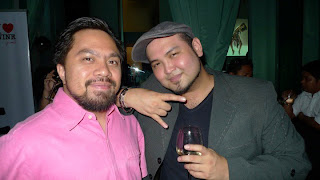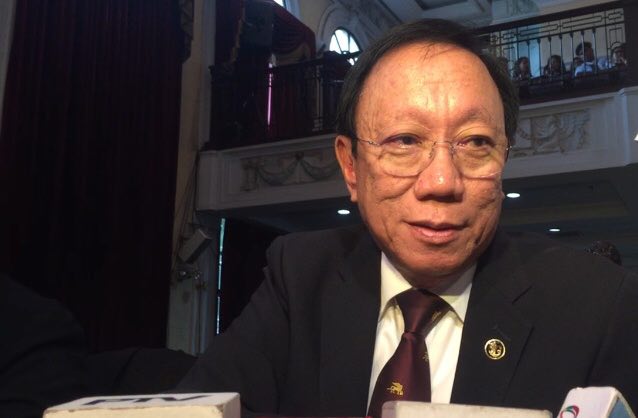
I was supposed to be opening a vintage thrift shop, but that’s been postponed. As a freelance production designer catering to mostly clubs and private hotel events, my career was butchered. How has the pandemic affected your practice? As an organiser for Elephant, a queer techno party, it's been depressing waving goodbye to our community's safe spaces like XX XX, Limbo, and Today X Future one by one. Paul Jatayna, production designer and artistic director Tidying up helps give me a fresh start every morning, and a nice environment to look at before I close my eyes. How are you taking care of your mental health? It helps to make your living space as comfortable as you can. Through it, I've ‘met’ people who also have a love for vintage.

I used to hold a physical one every year to declutter the costumes and clothes I use for my shoots. Have you taken up any new hobbies during quarantine? I have more time to do my YouTube videos, which are about thrifting and seeing the beauty in old things. It’s helped in terms of efficiency and creativity. Decision-making has become faster because of the curfew and limited resources. Each person can be assigned multiple roles because of the number of people allowed on set. How do you think it will affect your industry long-term? Even now, shoots are completely different. The time and environment at home has been energising and great for creative processes. We were able to declutter, work on the house, make videos, and so much more. As a photographer used to working very long days, I had to shift my mindset immediately.

Many projects were postponed indefinitely or cancelled altogether. How has the pandemic affected your practice? Shoots were frozen for months, and it's hard thinking about the people we used to work with day to day, especially those working behind the scenes, because a lot of them are on a “no work, no pay” basis. What’s your advice on getting through lockdown? All you need is Masterclass, painting materials, cooking lessons via YouTube and TikTok. If there’s something I’ve loved about staying home these past months is that I’ve had the time to experiment and do art for the joy of it, without any pressure or time constraints. Also, I started which was initially an account where people could purchase my art for the benefit of NGOs such as pagasa.ph, but it’s become a place for me to showcase my art and share my process with people. Have you taken up any new hobbies during quarantine? I’ve been working on new music with my sister which is always fun and therapeutic. It’s important to hold our governments accountable.

In my entire life, I’ve never felt the need to be more vocal about social issues than I do now. Has your outlook on life changed? Definitely my view on politics. I feel like this will push everyone in the industry to slow down and be more mindful of wastage. We’ve switched gears and started making masks and loungewear, things we feel our buyers need right now. But it has also pushed us to be more creative. Working from home has been stressful, as there’s only so much you can do. How has the pandemic affected your practice? Aside from projects being shelved, it’s posed a lot of challenges for my business, Neon Island. With it looking like we might all have to readjust to life under lockdown sometime soon, eight Manila-based creatives tell us how they’ve navigated the last few months. Familiar with bootstrapping to get by, they’ve overhauled their practices, adjusted to working via livestreams and Zoom calls, or simply hit pause to focus on themselves. Still, despite the harshness of the current climate, members of the capital’s young creative community have demonstrated admirable resilience. It looks like Filipinos will have to embrace this ‘new normal’ for the long haul - the country has been placed under a “state of calamity” until at least September 2021.

While some took to the streets to protest what they considered affronts to democracy, both the threat of imprisonment over quarantine violations (for example, 20 people were arrested at the Pride march) and the fear of contracting the virus have hindered in-person mobilisation. marine who killed a trans woman was granted absolute pardon by Philippine president Rodrigo Duterte, who has gained global notoriety for his violent crusade against drugs. A controversial Anti-Terror Bill was passed, renowned journalist Maria Ressa was found guilty of cyberlibel, broadcast network ABS-CBN was shut down, and, most recently, a U.S. Since the start of lockdown, a swift succession of alarming political decisions have been made. Beyond the pandemic, things have hardly looked much rosier.


 0 kommentar(er)
0 kommentar(er)
